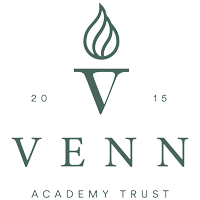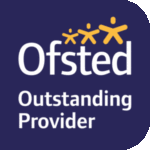Our curriculum is specifically design to meet the needs of a wide range of Sullivan Centre pupils and in doing so aims to meet the needs of a wide range of social and emotional difficulties which manifest themselves in many ways. Our curriculum structure aims to provide pupils with confidence in mathematics, providing suitable support and opportunities to embed learning, while catering for all children to achieve their potential.
The expectation is that the majority of pupils will move through the programmes of study at broadly the same pace. However, decisions about when to progress should always be based on the security of pupils’ understanding and their readiness to progress to the next stage. Pupils who grasp concepts rapidly should be challenged through being offered rich and sophisticated problems before any acceleration through new content. Those who are not sufficiently fluent with earlier material should consolidate their understanding, including through additional practice, before moving on. By applying this approach we aim to be able to cater for children in multiple years within the same classroom.
Structure
The pathway for pupils to progress to Grade 9 GCSE has been provided. However recognising the needs of pupils within our setting, we appreciate this is the exceptional case. Therefore provision for all are catered for by outlining related objectives across years into similar units. Units will be applied as learners progress from their starting point to maximise their progress.
KS3 Mathematics Intent for The Sullivan Centre
Through our KS3 Mathematics curriculum, we aim to promote a deep understanding of mathematical concepts, develop problem-solving skills, and encourage the application of mathematics in real-world contexts. We will focus on developing students’ fluency in basic arithmetic, algebraic manipulation and geometric reasoning, whilst also providing opportunities for students to explore more complex mathematical concepts.
KS3:
Section 1:
15 minutes core knowledge per day – This specifically aims to ensure all pupils have the necessary knowledge to access the curriculum and have the awareness and confidence in this knowledge. This time involves opportunities for retrieval or intervention to ensure knowledge is maintained and available to build upon.
Section 2:
45 minutes teaching along a mastery approach – Units are created in related objectives and subsequent years show the progression across this learning. Each units has lesson content designed to run over multiple lessons – this is referred to as mastery flows. This allows teachers to focus teaching in a progressive fashion, while those who require learning to be embedded have time to do so through application of learning into a range of questions including varied fluency, reasoning and problem solving.
For example Lesson flow 1 in Unit 1 in KS3
Day 1 – Teaching the year 7 content for all, this will potentially be a recap for pupils in year 8 and 9 (while recognising many of the pupils come to us requiring significant gap filling)
Day 2 – Teaching year 8 content.
Day 3 – Teaching year 9 core content (for those who are ready for that level of challenge)
This allows for all children to maximise their potential and to gain confidence in content.
Our KS3 Mathematics curriculum is designed to meet the requirements of the national curriculum, whilst also providing a flexible and personalised approach that is responsive to the individual needs of our students.
KS4 Mathematics Intent for The Sullivan Centre
At The Sullivan Centre, our intent for KS4 Mathematics is to provide a challenging and engaging curriculum that prepares our students for success in their GCSE or Entry Level Mathematics qualifications. The examination board is Pearson for GCSE Mathematics and Statistics.
We recognise that our students may have faced significant challenges in their education so far and we aim to provide them with the support and guidance they need to achieve their full potential.
Through our KS4 Mathematics curriculum, we aim to develop students’ mathematical fluency, reasoning and problem-solving skills, whilst also promoting a love of mathematics. We will focus on developing students’ understanding of key mathematical concepts such as number, algebra, geometry, statistics and probability, whilst also providing opportunities for students to apply these concepts in real-world contexts.
Our KS4 Mathematics curriculum is designed to meet the requirements of the national curriculum, whilst also providing a tailored and flexible approach that is responsive to the individual needs of our students. We will provide a supportive learning environment, with personalised feedback and guidance, to help our students achieve their goals and succeed in their future studies and careers.
KS4:
Section 1:
15 minutes core knowledge per day – While ensuring pupils maintain their knowledge to access the curriculum, this section also ensures pupils are functional in the core elements of mathematics which will support them beyond secondary education. This time will involve opportunities for retrieval or intervention of recently taught content where deemed necessary through teacher monitoring and assessment.
Section 2:
45 minutes teaching along a mastery approach – A majority of the KS4 content has been written into the year 10 curriculum, with just 3 units in year 11. This provides guidance as an intention for pace, however also provides opportunity for retrieval and spending longer on flows as guided by formative assessment
Lesson flows may link with year 9 core units for starting points if required and extend into the corresponding year 10 units. If pupils have significantly lower starting points, year 9 support content may be used in year 10 with year 10 content moving towards year 11. This is specifically designed for groups of pupils in danger of not achieving a grade 1.
Implementation
At The Sullivan Centre we recognise the importance of providing our students with high-quality Mathematics education to enable them to develop their mathematical skills, knowledge and understanding. Our implementation of Mathematics for KS3 and KS4 involves Mathematics being taught at least four times a week, with daily interventions designed to fill gaps in knowledge and challenge our higher achieving students.
Our Mathematics curriculum is carefully assessed and matched to the ability of each individual student. For students in KS3, we focus on developing their fluency in basic arithmetic, algebraic manipulation and geometric reasoning, whilst also providing opportunities for them to explore more complex mathematical concepts. Our KS3 curriculum is designed to provide a deep understanding of mathematical concepts, develop problem-solving skills, and encourage the application of mathematics in real-world contexts.
For students in KS4, we provide a challenging and engaging curriculum that prepares them for success in their GCSE or Entry Level Mathematics qualifications. We focus on developing their mathematical fluency, reasoning and problem-solving skills, whilst also promoting a love of mathematics. Our KS4 curriculum is designed to develop students’ understanding of key mathematical concepts such as number, algebra, geometry, statistics and probability, whilst also providing opportunities for them to apply these concepts in real-world contexts. Pearson exam is used for Mathematics.
To ensure that all our students make the best possible progress, we provide daily Mathematics interventions that are tailored to the individual needs of each student. These interventions are designed to fill gaps in knowledge and challenge our higher achieving students, ensuring that every student reaches their full potential and enables them to succeed in their future studies and careers.
Impact
A wide range of strategies are used to measure the impact of our Mathematics curriculum.
Assessment forms an integral part of the teaching and learning of this subject. The formative assessment of Mathematics is essential when identifying the strengths of individual children and their next steps. Assessments give a clear learning journey of all pupils. If pupils have misconceptions or gaps in their subject knowledge, additional teaching and support is immediately provided. Summative judgements of Mathematics are made each term with these being moderated to quality assure decisions. The progress of individual pupils are carefully monitored on a termly basis and those identified as not making progress are given high quality intervention.
Our subject leaders will also monitor the effectiveness of the Mathematics curriculum through carrying out regular subject 360 evaluations. These evaluations are quality assured by the Senior Leadership Team as part of their monitoring schedule.
Mathematics moderation is carried out with schools within the Trust on a regular basis.
The effectiveness of Mathematics is also monitored through pupil and parental voice throughout the course of the year.
In every lesson:
In every Mathematics lesson you should see the following:
- ‘Quality first’ teaching; tailored to meet the needs of the learners in each class, and immediate intervention to address gaps in learning where necessary
- Resilient learners with Growth Mindsets and a ‘We Can’ attitude to Mathematics, whatever their previous level of attainment
- Teachers using high-quality questioning to explore children’s understanding and develop it further.
- • Teachers making use of misconceptions to further understanding of key concept
- Teachers using a range of methods to explore key Mathematical concepts which appeal to pupils’ different styles of learning, employing concrete/pictorial/abstract representations of Mathematical concepts
- Learners being given the opportunity, through careful planning, to ‘linger longer’ on and ‘go deeper’ in mathematical concepts
- Development of fluency, reasoning and solving.






























































